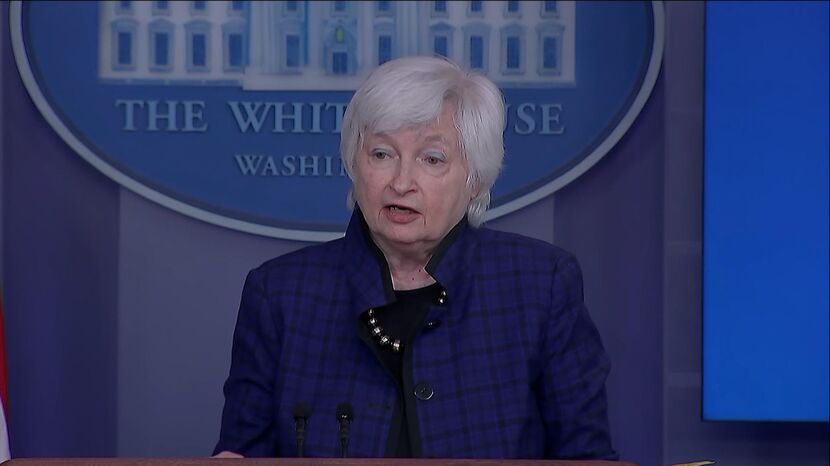Treasury Official: US Debt Limit Measures Could Expire In August

Table of Contents
Understanding the US Debt Ceiling and its Implications
The US debt ceiling is a legal limit on the total amount of money that the US government can borrow to meet its existing obligations. This isn't about spending more money; it's about the government's ability to pay for what it has already legally committed to, including Social Security, Medicare, military salaries, and interest on the national debt. Congress sets this limit, and raising it allows the Treasury to continue borrowing to pay these bills.
The consequences of exceeding the debt ceiling, often referred to as a default, are severe and far-reaching. A default would represent a catastrophic failure by the US government to meet its financial obligations, potentially triggering a cascade of negative economic events.
- Potential impact on credit rating: A default could lead to a downgrade in the US credit rating, increasing borrowing costs for the government and potentially for businesses and individuals.
- Risk of government shutdown: Without the ability to borrow, the government could be forced to shut down non-essential services, impacting millions of Americans.
- Negative impact on the US dollar: A default could severely weaken the US dollar, impacting international trade and global financial markets.
- Increased borrowing costs: Higher interest rates would make it more expensive for the government, businesses, and consumers to borrow money, hindering economic growth.
- Uncertainty in the financial markets: The uncertainty surrounding a potential default would create volatility in the stock market and other financial markets, impacting investor confidence.
The Treasury Department's Warning and the August Deadline
The Treasury Secretary's recent statement highlighted the potential expiration of the US debt limit measures in August. While the exact date remains uncertain, the Treasury is employing "extraordinary measures" to manage cash flow and avoid breaching the limit. These measures include delaying certain payments and prioritizing others, but they are not a long-term solution.
- Specific date uncertainty: The Treasury hasn't provided a precise date, stating it depends heavily on incoming tax revenue and government spending. The actual date could fall anywhere within August, introducing significant market uncertainty.
- Treasury's cash management techniques: The Treasury utilizes various techniques, including suspending investments in government retirement funds and delaying certain payments, to buy time before exceeding the debt limit.
- Factors influencing expiration: Tax revenues, especially during peak tax seasons, play a vital role in determining how long the Treasury can continue employing these extraordinary measures. Unexpected surges or drops in tax revenue can significantly affect the timing of the deadline.
- Uncertainty surrounding the exact date: The lack of a concrete expiration date contributes to market volatility and heightens the pressure on Congress to act swiftly.
Potential Economic Impacts of a Debt Ceiling Breach
Failing to raise the US debt ceiling before the August deadline could trigger a major economic crisis. The consequences would be felt across all sectors of the economy, potentially leading to a global recession.
- Increased inflation: A default could lead to a significant increase in inflation, eroding purchasing power and further impacting consumer confidence.
- Job losses: Economic instability resulting from a default could trigger widespread job losses across various industries.
- Stock market volatility: The stock market is expected to react negatively to a default, leading to significant market volatility and potential losses for investors.
- Reduced consumer confidence: Uncertainty and fear of a recession would likely reduce consumer confidence and spending, further dampening economic growth.
- Global market instability: The US economy plays a crucial role in the global financial system. A default would likely trigger a chain reaction, creating instability in global markets.
Political Implications and Potential Solutions
Reaching a bipartisan agreement on raising the debt ceiling is proving to be a significant political challenge. Negotiations between the White House and Congress are ongoing, but the differing priorities of the political parties pose significant hurdles.
- Negotiations between the White House and Congress: The success of these negotiations is crucial for preventing a default. Compromises on spending levels will likely be essential.
- Potential compromises and concessions: Both parties will have to make concessions to reach an agreement. The specifics of these compromises are still uncertain.
- Role of different political parties: The political divide between the two major parties could significantly hinder progress. Reaching a bipartisan solution is therefore paramount.
- Public opinion and its influence: Public opinion on the debt ceiling debate could influence lawmakers' decisions and increase pressure to find a solution.
- Historical precedent for debt ceiling crises: Studying past debt ceiling crises could offer insights into potential outcomes and the effectiveness of various strategies.
Conclusion
The looming expiration of the US debt limit measures in August presents a significant challenge to the US economy and global financial markets. Failure to reach a timely agreement on raising the US debt ceiling could have severe consequences, including a potential government default, economic instability, and global market uncertainty. Understanding the intricacies of the US debt limit and its potential repercussions is paramount.
Call to Action: Stay informed about the ongoing developments regarding the US debt limit. Monitor news from reliable sources and engage in informed discussions to understand the potential impact of the US debt ceiling on your financial well-being. Understanding the US debt limit is critical for navigating the upcoming economic challenges.

Featured Posts
-
 Navigating The Chinese Market The Bmw And Porsche Case Study And Beyond
May 10, 2025
Navigating The Chinese Market The Bmw And Porsche Case Study And Beyond
May 10, 2025 -
 Tech Billionaires Inauguration Donations 194 Billion In Losses And Counting
May 10, 2025
Tech Billionaires Inauguration Donations 194 Billion In Losses And Counting
May 10, 2025 -
 Seattle Welcomes Canadian Sports Fans Businesses Offer Par Exchange Rates
May 10, 2025
Seattle Welcomes Canadian Sports Fans Businesses Offer Par Exchange Rates
May 10, 2025 -
 Ajaxs Brobbey A Formidable Presence In The Europa League
May 10, 2025
Ajaxs Brobbey A Formidable Presence In The Europa League
May 10, 2025 -
 Ftc Probe Into Open Ai Implications For Chat Gpt And The Future Of Ai
May 10, 2025
Ftc Probe Into Open Ai Implications For Chat Gpt And The Future Of Ai
May 10, 2025
